The Rhodes Scholars Guiding Biden’s Presidency
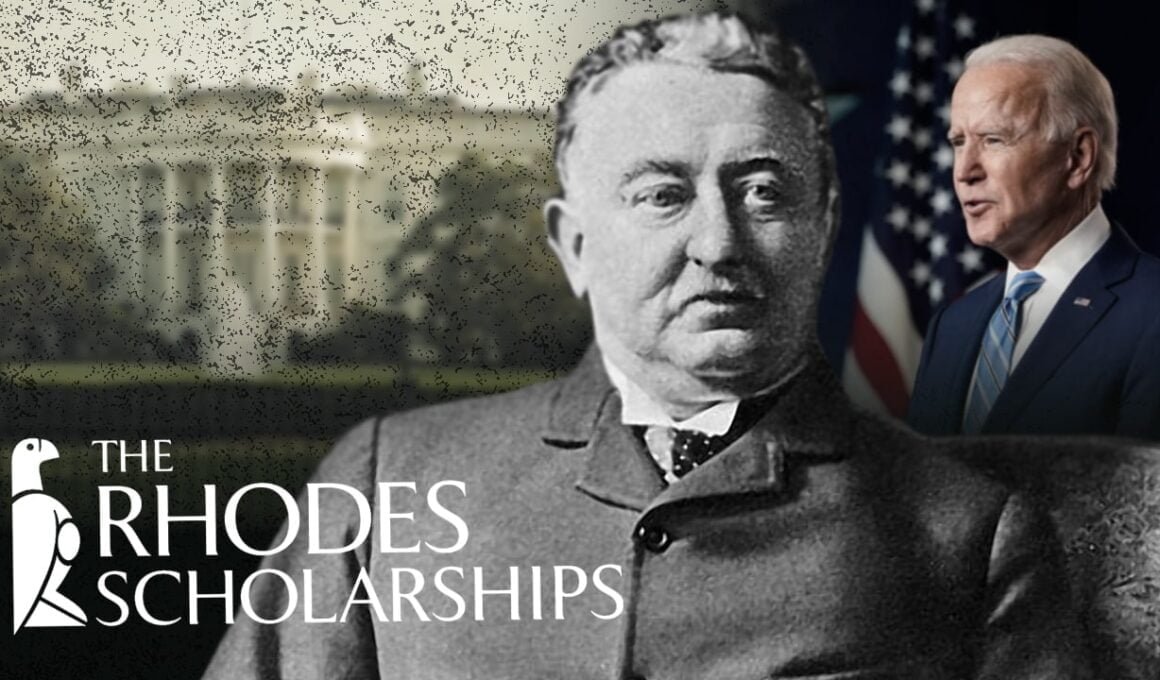
The recent, pandemic-ridden years have involved a steep and often traumatic learning curve for many citizens across the Trans Atlantic. One particularly shocking revelation that has ripped virally across the internet in recent daysrevolves around the revelations that the World Economic Forum’s ‘Young Global Leaders’ have been positioned across western governments and powerful private institutions over the past three decades.
Videos of Klaus Schwab bragging that Young Leaders have been positioned across the governments of Canada, Argentina, Europe and beyond are now being posted across social media platforms on a daily basis, confirming the suspicions of many that the World Economic Forum is not a benign business networking operation, as it has tried to project for the credulous. Rather, it is something much darker and insidious.
Set up in 1993 as the Global Leaders of Tomorrow and renamed WEF Young Leaders Forum in 2004 (fueled with funds from such benevolent institutions as JP Morgan Chase and the Bill and Melinda Gates Foundation), over 1400 young leaders (under the age of 38) from both public and private sectors have been processed through the program. For those tapped to become members of this elitist clique, they agree to attend six years of regular WEF conferences featuring seminars, focus groups and other special experiences both at Davos and at regional WEF events, at which point they graduate and become “alumni” who, in turn, become capable of nominating future young leaders.
Just a tiny sampling of the prominent figures who have been processed and installed into positions of influence to advance the WEF globalist agenda over the past 30 years include Angela Merkel, Nicholas Sarkozy, Emmanuel Macron, Tony Blair, Mark Zuckerberg, José Manuel Barroso, Bill Gates, Chrystia Freeland, Pete Buttigieg, Jacinda Arden (PM New Zealand), Jack Ma (Ali Baba founder), Larry Fink (Blackrock CEO), Larry Page (Google founder), Lynn Forrester de Rothschild (Council for Inclusive Capitalism founder), Jimmy Wales (Wikipedia founder), Peter Thiel (Paypal founder), Leonardo Di Caprio (tool), Richard Branson (Virgin Records CEO), Jeff Bezos (Amazon founder), Stephan Bancel (Moderna CEO), Pierre Omidyar (Ebay co-founder), Alizia Garza (co-founder BLM), Jonathan Soros (son of sociopath) and, according the Schwab, himself “half the Canadian Cabinet” under Prime Minister Justin Trudeau.
As important as it is to hold this disturbing fact in mind, it is even more important not to lose sight of the deeper historical forces at play and the older institutional practice of talent searching young blood upon which the YGL Program is based.
Just as Klaus Schwab was never his own man, having been trained by his mentors Maurice Strong (co-founder of the WEF) [1] and his Harvard mentor Henry Kissinger, so too were Klaus’ Young Leaders merely a modern version of an older practice that has been at play for over 114 years. This older institution is the Rhodes Scholarship system and the associated Round Table Movement, which created both Chatham House in 1919 and its American branch, dubbed “The Council on Foreign Relations,” in 1921.
This program has been incredibly influential and has also generated immense damage over the last century. Thousands of young Americans have been processed through the halls of Oxford since its founding who are then re-inserted back into their native land with a religious-like zeal to advance an agenda, the full scope of which very few of them truly comprehend.
The Example of Biden’s Cabinet
During the first year of the Biden administration, swarms of Oxford-trained Rhodes Scholars were swept into dominant positions of power across America’s domestic and foreign policy landscape.
The hegemony of the Council on Foreign Relations as a major top-down planning center for the Rules-Based International Order has also been firmly re-established after having been relegated to a back seat during the four year period of Donald Trump’s presidency. Trump’s term was referred to by CFR President Richard Haass as “the aberration”. Haass himself is a Rhodes Scholar, having graduated from Oxford’s Oberlin College in 1978.
The CFR and the Rhodes Scholarship program are simply two sides of the same process that have acted as a key pillar to the establishment of fifth column operations within the USA, and the Trans Atlantic Community more generally, during the past century. Both the CFR and the Rhodes Scholarship were established by the ill-begotten fortunes of Cecil Rhodes.
Cecil Rhodes’ Vision Revisited
Every year since its creation in 1902, over 30 talented young American scholars have been rewarded each year with the privilege of an all-expenses-paid brainwashing in the halls of Oxford University, on the dime of the riches left to posterity by the deceased diamond magnate Cecil Rhodes, before being re-deployed back to their home nations.
Rhodes himself was a leading mining magnate who was used by the powerful financiers of London to consolidate mining operations across South Africa, thereby cornering the global diamond market and founding such rapacious institutions as DeBeers. Rhodes used his economic influence to rapidly ascend through the ranks of political office, becoming Prime Minister of Cape Colony, which comprised much of today’s South Africa, from 1890-1896.
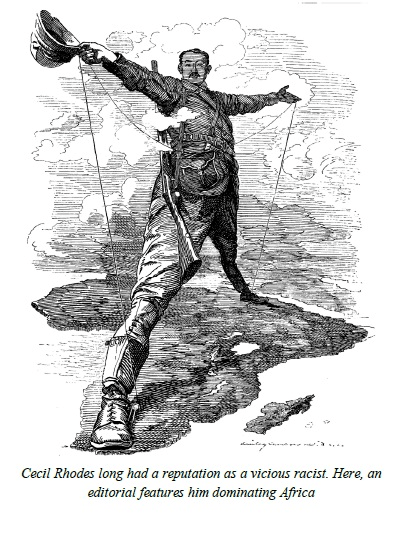
During this time, Rhodes oversaw the vast theft of lands from native Africans while also guaranteeing that no blacks would be permitted to play any role in the political process by tripling the wealth requirement for voting.
Rhodes consolidated British imperial control over much of southern Africa by directing the invasion and takeover of the region north of Cape Town (today’s Zambia and Zimbabwe), which later became dubbed Rhodesia.
During the second Boer War against the Transvaal Republic (a coalition of Dutch settlers and Zulus), Rhodes’ network of sociopathic imperial managers, dubbed “Milner’s Kindergarten,” worked with Lord Kitchener to innovate new genocidal techniques for asymmetrical warfare. These techniques included poisoning water systems and establishing a new model of concentration camps, which killed over forty thousand innocent civilians via starvation and disease.
Commenting upon the rates of children dying in the concentration camps, Lord Milner, a close ally of Rhodes, stated the “fact that the death rate among young children in the camps was still not dropping. ‘The theory that, all the weakly children being dead, the rate would fall off is not so far borne out by the facts… The strong ones must be dying now and they will all be dead by the spring of 1903.'”
This concentration camp system proved incredibly effective at breaking the spirits of the Transvaal soldiers who soon succumbed to the empire’s stranglehold across South Africa. It was later adopted by the Nazis during WWII.
Rhodes’ early disciples included such luminaries as Lord Alfred Milner, Sir Halford Mackinder, George Parkin, W.T. Stead and the Canadian oligarch Vincent Massey (to name a few). His early backers included high level figures among the British intelligentsia including Prince Edward Albert and Lord Nathaniel Rothschild, who saw that a new strategy was needed to halt the spread of the American System and its policies around the world, particularly in the wake of Lincoln’s victory over the South during the Civil War.
Empire in Crisis: The Late 19thCentury Breakdown of Unipolarism
During the last decades of the 19th century, it was becoming increasingly clear to many that the unipolar days of the British Empire stood on shaky foundations. Starting in the 1870s, a new multipolar system of win-win cooperation was emerging internationally due to the spread of nationalist systems of political economy, modelled on the best attributes of America’s Hamiltonian system.
In Germany, the Zollverein was established under Chancellor Bismarck, which unified the compartmentalized state around a holistic protective tariff to block the dumping of cheap goods from abroad, while uniting Germany’s regions around internal free trade, productive credit, rail development, industrial growth and other labor reforms. These reforms had been driven by the teachings of the influential German economist Friedrich List, who formulated his system during his five years in the USA. He was among the first to coin the term “American System of Political Economy” in 1827.
In Russia, Finance Minister Sergei Witte led a parallel reform, adopting protectionism to favor the growth of native agro-industrial power while driving continental interconnectivity via the Trans Siberian Railway (made with Baldwin Locomotives from Philadelphia), which was assisted by teams of American engineers. Witte worked closely with a network of nationalists who had worked closely with Lincoln to save the union from British-directed dissolution during the Civil War. He initiated the sale of Alaska with plans to extend rail and telegraph through the Bering Strait and launched a vast anti-corruption program in Russia itself.
Protectionism, anti-corruption reforms and internal improvements were adopted in France by the government of Sadi Carnot and his Foreign Minister Gabriel Hanotaux and also in Japan, where American advisors like Erasmus PeshineSmith were helping the restored Meiji government adopt national banking programs and rail development.
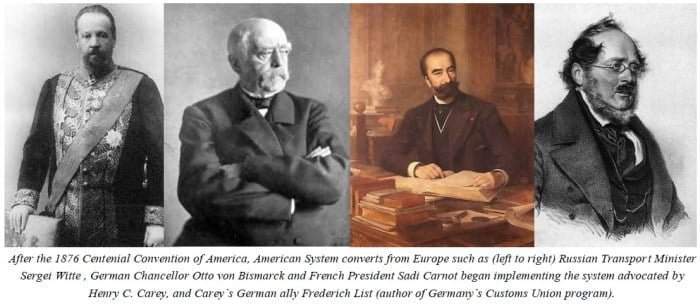
What was most frightening for the upper echelons of the British elite, was that these developments were not isolated to the borders of various states wishing to break free of British dominance of private finance and maritime shipping – they now extended across borders. Bismarck’s Berlin-to-Baghdad railway was one example, as was the Russia-Chinese railway through Manchuria.
Rail projects extending the newly built Trans Continental railway through British Columbia, and then through Alaska and the Bering Strait into Eurasia, were being discussed by statesmen and engineers on both sides of the Atlantic from the moment Alaska was sold to the USA in 1867. These discussions continued until the day Witte was ousted from power in 1906. The 1890 Cosmopolitan Railway map published by Lincoln-ally and former Governor of Colorado William Gilpin is a reminder of the trajectory of the sort of world then being brought into existence.
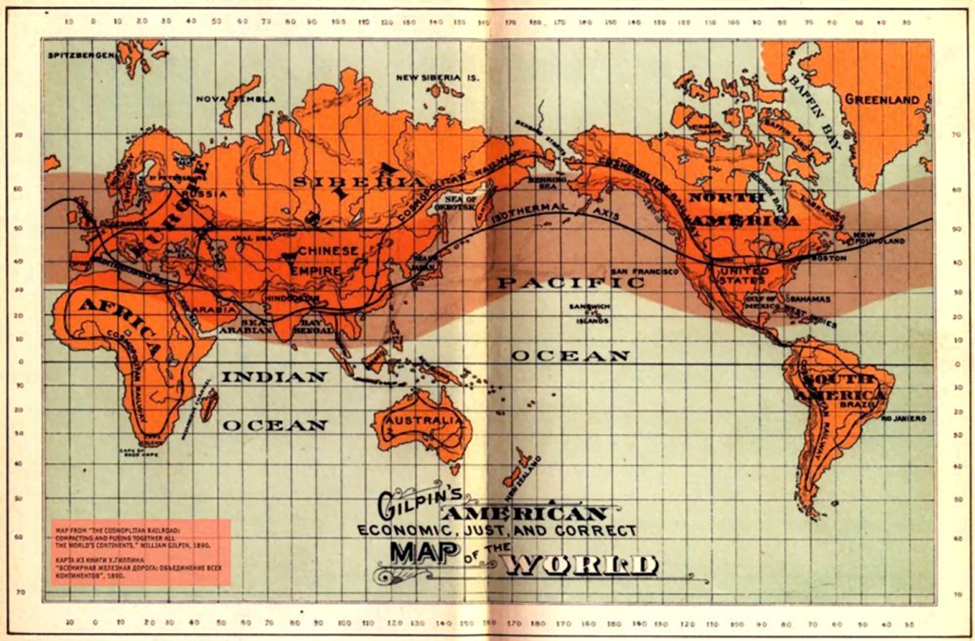
The growth of a community of win-win cooperation as the basis for international law was a prospect deemed intolerable by many devout social Darwinists and eugenicists among the British ruling class.
Outlining his vision for the new paradigm then coming into being, Gilpin wrote in 1890:
“The weapons of mutual slaughter are hurled away; the sanguinary passions find a check, a majority of the human family is found to accept the essential teachings of Christianity IN PRACTICE… Room is discovered for industrial virtue and industrial power. The civilized masses of the world meet; they are mutually enlightened, and fraternize to reconstitute human relations in harmony with nature and with God. The world ceases to be a military camp, incubated only by the military principles of arbitrary force and abject submission. A new and grand order in human affairs inaugurates itself out of these immense concurrent discoveries and events”
[Cosmopolitan Railway p. 213]
This was not an operating system acceptable to the misanthropic ideals of Malthusian social engineers, whose self interest was located in keeping the world divided, ignorant, hungry and at war. Something had to be done.
Cecil Rhodes and the Creation of a New Religion
The early members of the Rhodes Trust hive interfaced closely with London’s Fabian Society throughout the 20th century and became the new disciplined elite that gradually infiltrated throughout society. This new breed of imperial management exerted its influence in much the same way earlier Jesuit operations had been formed and deployed across Europe beginning in the 16th century.
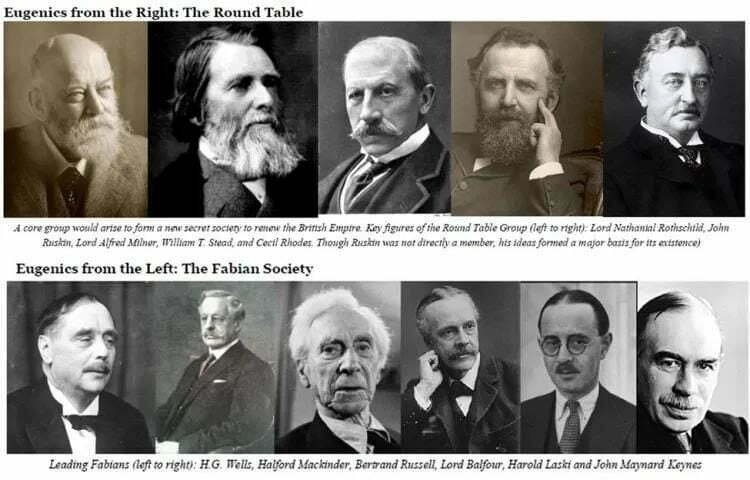
For anyone confused as to the purpose of this Rhodes Scholarship program, one need look no further than Rhodes’ 1877 Confessions of Faith and Seven Wills, which called for the domination of “inferior races” by Anglo-Saxon superiority, as well as the ultimate recapturing of America and the creation of a new Church of the British Empire:
“Let us form the same kind of society, a Church for the extension of the British Empire. A society which should have its members in every part of the British Empire working with one object and one idea we should have its members placed at our universities and our schools and should watch the English youth passing through their hands just one perhaps in every thousand would have the mind and feelings for such an object, he should be tried in every way, he should be tested whether he is endurant, possessed of eloquence, disregardful of the petty details of life, and if found to be such, then elected and bound by oath to serve for the rest of his life in his Country. He should then be supported if without means by the Society and sent to that part of the Empire where it was felt he was needed.’
In another will, Rhodes described in more detail his intention to create an organization:
“For the establishment, promotion and development of a Secret Society, the true aim and object whereof shall be for the extension of British rule throughout the world. The colonization by British subjects of all lands where the means of livelihood are attainable by energy, labour, and enterprise and especially the occupation by British settlers of the entire Continent of Africa, the Holy Land, the Valley of the Euphrates, the islands of Cyprus and Candia, the whole of South America, the islands of the Pacific not heretofore possessed by Great Britain, the whole of the Malay Archipelago, these aboard of China and Japan, [and] the ultimate recovery of the United States of America as an integral part of the British Empire.”
Describing his thinking to his disciple W.T. Stead, Rhodes wrote: “Please remember the key of my idea discussed with you is a Society, copied from the Jesuits as to organisation”.
A Calamitous 20th Century
As generations passed, the continuity of purpose that transcended individual lives of players on the stage was maintained by certain organizations that grew out of the original Rhodes/Milner Round Table movements, which now had branches in the Anglo-Saxon majority countries that had formed part of the British Empire. By 1919, after the Round Table had taken control of Canadian and British governments during 1911 and 1916 coups, this group created the Royal Institute for International Affairs (also known as Chatham House).
By 1921, an American branch was set up called the Council on Foreign Relations (CFR), which was staffed with Rhodes Scholars and Fabians and has maintained a continuity of intention to the present day. This organization spawned dozens of influential sub-organizations, which always interface with a form of “central command”. When Hillary Clinton once referred to the CFR as the “mother ship” in 2009, this is what she was referring to.
Although it was inaugurated in 1921, the CFR’s creation can be traced to the same May 30, 1919 meeting at the Hotel Celeste in France that also saw the birth of the Royal Institute for International Affairs. Leading members among the 50 Anglo-American delegates attending that founding meeting included Round Table leader Lionel Curtis, Lord Eustice Percy, German-American financier Paul Warburg and Wilson-advisor Edward M. House. Many of these figures (including House and Warburg) had been instrumental in instituting the US’Federal Reserve System in 1913, and had also gone far to finance the Bolshevik Revolution that turned Russia inside out.
The official Chatham House website described the founding meeting in the following terms:
“At the Hotel Majestic, Curtis gave a rousing speech where he told the assembled scholars and officials that it was up to them, people who operated at the intersection of high politics and scholarship, to shape the new peace by educating the public on international issues. There was also an expectation, underpinned by Anglo-American social connections and institutions such as the Rhodes scholarships, that it would be up to Britain and the United States to determine the course of international politics in the post-war period.”
Branches in Canada, Australia, and South Africa were set up in 1928, 1933 and 1934, respectively.
Although many historians refer to the Council on Foreign Relations as “an American organization,” with the earlier Chatham House acting as junior partner, the truth is just the opposite.
A young student of Harvard’s William Yandell Elliot (himself a leading Rhodes Scholar) was none other than former Secretary of State Sir Henry Kissinger who stated gushingly at a May 10, 1981 Chatham House event:
“The British were so matter-of-factly helpful that they became a participant in internal American deliberations, to a degree probably never practiced between sovereign nations… In my White House incarnation then, I kept the British Foreign Office better informed and more closely engaged than I did the American State Department… It was symptomatic”.
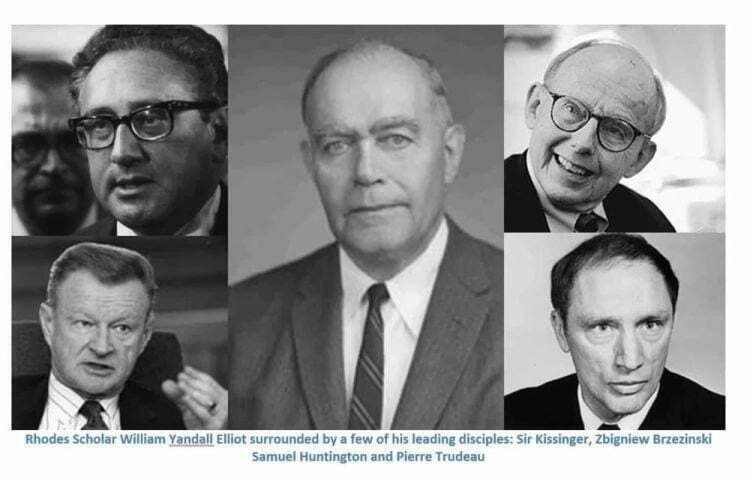
It is no exaggeration to state that many important events that happened during the dark bipolar years of the Cold War intimately involved the top-down role of Rhodes Scholars. Occupying critical positions within the State Department in both the USA and Canada, UN bureaucracy and Foundations, Rhodes Scholars operated with a level of discipline, enthusiasm and coherence unseen in any modern imperial civil service [2].
From Escott Reid’s designs for NATO two full years before the anti-Russian organization was brought online, to George McGhee’s advance of the Truman Doctrine, to Dean Rusk’s guiding hand behind the Korean War, US support of the French in Vietnam and later US involvement in Vietnam, to Senator J. William Fulbright’s promotion of globalism and a European Union, everywhere you see a bad idea being born during the post-WWII years, there is almost invariably a Rhodes Scholar or “Rhodie” to be found behind it.
Two years before his death on April 12, 1945, President Franklin Roosevelt shared his concerns of this foreign agenda and its disciples permeating his own State Department, waiting to take control of US foreign policy at a moment’s notice, when he said to his son Elliot:
“You know, any number of times the men in the State Department have tried to conceal messages to me, delay them, hold them up somehow, just because some of those career diplomats over there aren’t in accord with what they know I think. They should be working for Winston. As a matter of fact, a lot of the time, they are [working for Churchill]. Stop to think of ’em: any number of ’em are convinced that the way for America to conduct its foreign policy is to find out what the British are doing and then copy that!” I was told… six years ago, to clean out that State Department. It’s like the British Foreign Office….”
Of course, FDR’s vision for a world of US-Russia-Chinese cooperation and internationalization of the New Deal was more than a little anathema to Cold War, which Rhodes Scholars had been preparing so they could sculpt the world order after WWII. Neither FDR, his allies nor his grand design could be tolerated for long [3].
While the Rhodes Scholar hives managed to permeate ivy league schools, media outlets, private corporations, elected offices and the civil service during the 20th century, as laid out by Professor Carrol Quigley’s posthumously published The Anglo-American Establishment, the prize of the presidency remained an elusive trophy… until the day one of Quigley’s own students returned from Oxford and soon became Governor of Arkansas.
Clinton Opens the Floodgates
With Bill Clinton’s 1992 presidential victory, Rhodes Scholars like Strobe Talbott (Assistant Secretary of State and co-architect of Perestroika) and Robert Reich (Secretary of Labor), were joined by “Rhodies” Ira Magaziner, Derek Shearer (Senior Economic Advisors), Susan Rice (Assistant Secretary of State for African Affairs), Kevin Thurme (Health and Human Services Chief of Staff), George Stephanopoulos (Communications Director), Richard Celeste (Ambassador to India) and dozens of other Rhodes Scholars. These individuals were funneled into positions of influence that aimed to oversee the “end of history”, as celebrated by neocon thinker Francis Fukuyama, as the Soviet Union disintegrated.
While some Rhodies remained in positions of power during the period of the presidency of George W. Bush, the Rhodes Hives again enjoyed vast policy-shaping influence under the Obama-age where the architecture for global governance was being built on the wreckage of troublesome nation states like Libya, Syria and Ukraine.
Despite the set back caused by Trump, whose victory interfered with Hillary Clinton’s coronation, Rhodies are stubborn creatures, if nothing else. It was later revealed in 2020 that both Talbott and Rice were at the heart of Russiagate.
While still serving as Brookings Institute President in 2015-17, it was Talbott who interfaced with MI6’s Sir Richard Dearlove and Christopher Steele in the months before the elections by cooking up and circulating the “dodgy dossier”. It was Rice who was revealed to be at the center of the “unmasking” entrapment operation that targeted Michael Flynn in January 2017.
It would be the height of folly to presume, as some commentators have done, that Talbott’s role in this operation indicates an American guiding hand in the effort to undo the 2016 elections. Yet, the fact is that Talbott’s entire life and world outlook have been shaped by British Imperial principles that are programmed into the minds of most Rhodes Scholars like himself.
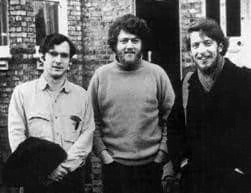
As Jeremy Kuzmarov demonstrates in his recent essay published in Covert Action Magazine, both Talbott and his Oxford roommate Bill Clinton had likely been recruited to the CIA long before receiving their scholarships. Kuzmarov also demonstrates that Bill Clinton played a key role smuggling Khrushchev’s memoir out of Russia during a “research” expedition to Moscow. Clinton’s role in this operation gives new meaning to the role Talbott played in translating that memoir into English as part of a much larger Anglo-American intelligence operation designed to revise Soviet history.
It was also during his time at Oxford that young Talbott adopted a near-religious commitment to a post-nation state world order.
Upon his return to America, Talbott was shepherded into a prominent role in the western propaganda bureau, serving as a leading editor of Time Magazine. It was during the end of this phase of his career that the soon-to-be Assistant Secretary of State outlined his manifesto for the New World Order in a July 20 1992 article entitled “The Birth of a Global Nation”.
In that article, Talbott stated:
“All countries are basically social arrangements…No matter how permanent or even sacred they may seem at any one time, in fact they are all artificial and temporary…Perhaps national sovereignty wasn’t such a great idea after all….But it has taken the events in our own wondrous and terrible century to clinch the case for world government.”
Within his 1992 manifesto, Talbott describes NATO as “history’s most ambitious, enduring and successful exercise in collective security” and then celebrates the International Monetary Fund. Talbott said “the free world formed multilateral financial institutions that depend on member states’ willingness to give up a degree of national sovereignty. The International Monetary Fund can virtually dictate fiscal policies, even including how much tax a government should levy on its citizens.”
Forecasting the Blair-Cheney “Responsibility to Protect” protocol which would soon justify the humanitarian bombings of Kosovo, Iraq, Libya and Syria, Talbott championed the destruction of national sovereignty made possible by the invasion of Kuwait in 1991, saying “the internal affairs of a nation used to be off limits to the world community. But the principle of ‘humanitarian intervention is gaining acceptance.”
During the entire Clinton Presidency, Talbott ensured that his utopian beliefs would not remain ink on paper, but be put swiftly into action, interfacing closely with Soros’ Open Society Foundations and overseeing the Shock Therapy of Russia during the 1990s.
Revenge of Rice and the Rhodies
Among the top Rhodies guiding US President Joe Biden is none other than Susan Rice, who is now the director of Biden’s Domestic Policy Council.
In 1990, Rice received her PhD in International Relations from New College, Oxford and, in 1992, received the first annual award from Chatham House for “the most distinguished dissertation in the UK in the field of International Studies” for her thesis “The Commonwealth Initiative in Zimbabwe 1979-80”. In her thesis, Rice lauded the British peace keeping transition after the empire’s 13 year war against Zimbabwe liberation.
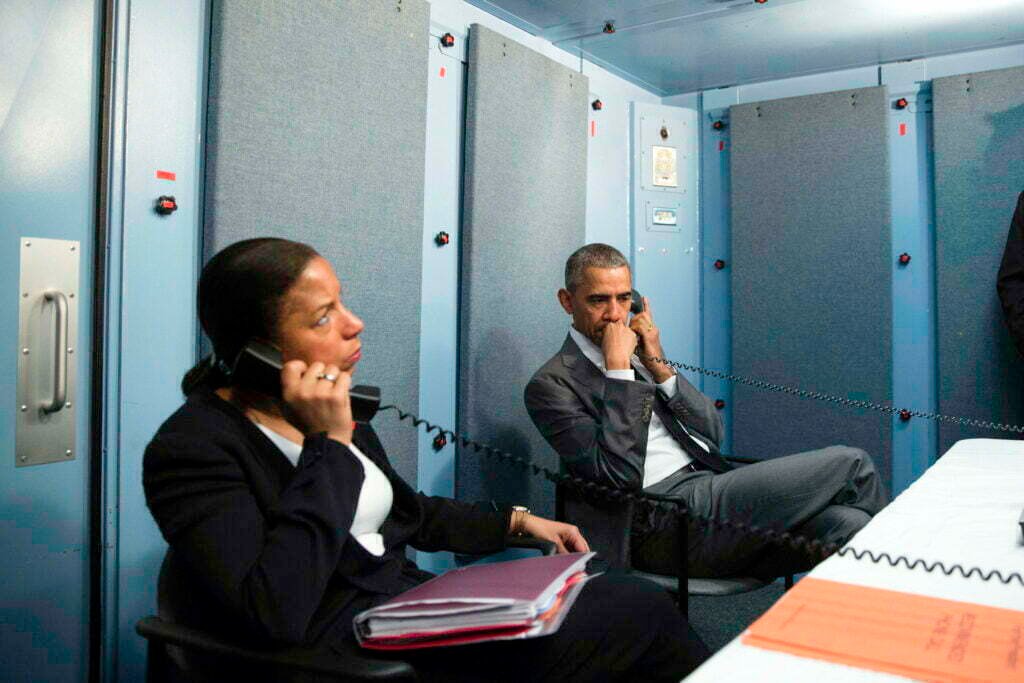
Describing her love of Oxford, Rice delivered remarks at Rhodes House in 1999 saying:
“To be at Rhodes House tonight with so many friends, benefactors and mentors is a personal privilege. It is like a coming home for me for much of what I know about Africa was discovered within these walls, refined at this great university with generous support of the Rhodes Trust.”
It is worth keeping in mind that as she spoke those words, Rice had recently demonstrated her imperial worldview by coordinating the destruction of a Sudanese pharmaceutical factory in 1998 and threatening South Africa with economic destruction unless it gave up its desire to produce generic and affordable AIDS medication that same year. While serving as special assistant to Bill Clinton and Senior Director of African Affairs at the National Security Council, Rice oversaw a well documented rogue CIA operation that ensured US support to the invasion of the Democratic Republic of Congo by Ugandan and Rwandan-sponsored rebels. A September 2009 New York Review of Books article by Howard French documented Rice’s role in this genocidal operation:
“Museveni [of Uganda] and Kagame [of Rwanda] agree that the basic problem in the Great Lakes is the danger of a resurgence of genocide and they know how to deal with that. The only thing we have to do is look the other way.”
During these operations that targeted Hutu refugees, it is estimated by UN officials that over 200,000 people were massacred simply because Rice demanded the USA “look the other way”.
Rice worked to balkanize Sudan and to promote military intervention across the Arab and African worlds under the Responsibility to Protect doctrine (R2P) with the cooperation of supranational organizations like the International Criminal Court (ICC), which issued an arrest warrant for President Bashir. Her handiwork would have made Cecil Rhodes proud.
We should not forget that the Sudan-Libya-Egypt alliance under the combined leadership of Mubarak, Qadhafi and Bashir, had moved to establish a new gold-backed financial system outside of the IMF/World Bank to fund large scale development in Africa. Had this program not been undermined by a NATO-led destruction of Libya, the carving up of Sudan and regime change in Egypt, then the world would have seen the emergence of a major regional block of African states shaping their own destinies outside of the rigged game of Anglo-American controlled finance for the first time in history.
Following the Rhodes model of economic exploitation of colonized people, today’s Anglo-American neocolonial models of finance have mastered the art of providing usurious loans with many strings attached and structural adjustment measures that would ensure those target populations never benefit or break free from the economic dominance of a masterclass that exploits their land and labor.
Beyond Rice, other Rhodes Scholars emerging into positions of control in the current Biden administration include National Security Advisor Jake Sullivan, who graduated from Oxford’s Magdalene College and worked under Strobe Talbott at the Brookings Institute’s Center for the Study for Globalization at Yale in 2000. During this time, Rice had also come to work as Senior Fellow at Brookings, followed by a stint as UN Ambassador from 2009-2013 and Obama’s National Security Advisor from 2013-2017, while Sullivan went on to become Biden’s top security aid during the Obama years.

The Tale of Two Failed Mayors: Buttigieg and Garcetti
Due to an embarrassing series of scandals, Rhodes Scholar Eric Garcetti (former Mayor of LA) was pulled from Biden’s early cabinet. But now, with a full year in the penalty box, Garcetti’s rehabilitation was announced on July 2021 with his appointment as US ambassador to India. Acting as Chair of the C40 Cities (a network of 97 major cities around the world), and also the co-founder of Climate Mayors (representing 400 US mayors who have signed onto the Paris Climate Accords), Garcetti is a driving force of the Green New Deal, which is itself an integral part of the Great Reset.
Garcetti has made it known that his priorities in India will be to expand the “green cities” program deeper into India, work to combat Russia’s relationship with the Indian military, and promote an anti-China outlook amongst the India elite.

Another Rhodes Scholar and former mayor, Pete Buttigieg, was more fortunate than Garcetti and was given the keys to the Transportation portfolio, although he had first been considered for the position of US Ambassador to China. Although conservatives are quick to paint Buttigieg and Democrats as stooges for “evil China”, it was in fact Buttigieg who said in May 2020: “Beijing sees an opportunity to call into question the American project and liberal democracy itself. One thing they’re banking on is four more years of Trump.”
As I laid out in my previous reports, Soros himself has repeatedly labelled the two greatest threats to his “open society” as 1) Xi Jinping’s China and 2) Trump’s USA and even recently called for the overthrow of President Xi in defense of his preferred configuration of the global order.
Bruce Reed: Political Operative
Another Rhodie named Bruce Reed had originally entered Washington as part of the first 1992 Rhodes Scholar infusion as the Clinton-Gore campaign manager and later director of Clinton’s Domestic Policy Council. Reed has since been tapped as the top tech advisor to Biden and has since openly called for cracking down on free speech online by cancelling Federal Internet law Section 230.
This law has kept website owners free from prosecution over content published on their sites. Its cancellation would crush what dwindling free speech still exists on social media. The argument advanced by Reed has been that Section 230 has been used by Russian and Chinese operatives to infiltrate the information ecosystem and manipulate Western elections. With its repeal, Facebook and other social media sites will be forced to censor all “illicit” thought crimes under fear of federal prosecution.
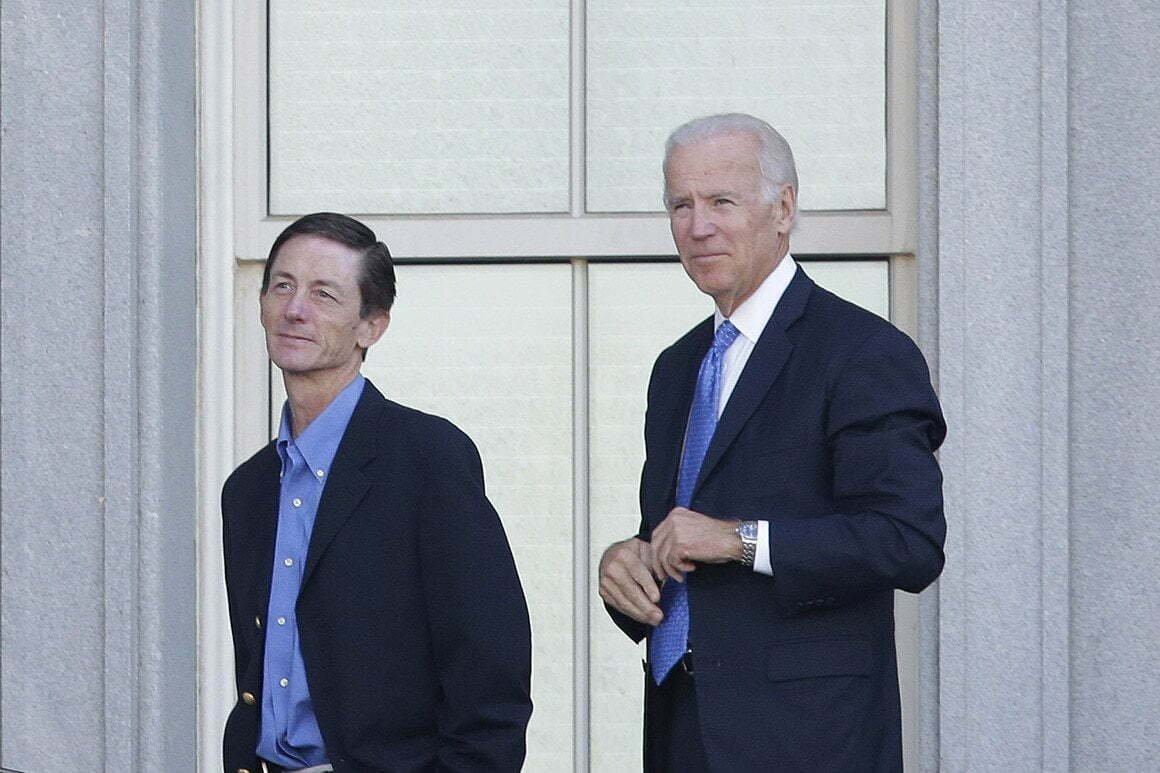
Reed had previously teamed up with Biden in drafting the infamous 1994 crime bill, which gave countless petty criminals longer-term sentences, benefiting the prison-cheap labor complex. During the Obama years, Reed worked as Biden’s Chief of Staff and lead handler. He is currently also serving as the Deputy Chief of Staff to the White House and is commonly described as a “political operative”.
Eric Lander: Rhodie, Geneticist and Science Czar
One particularly notable Rhodes Scholar who ran US science policy between June 2, 2021 and February 28, 2022 is geneticist Eric Lander. Although his systematic abuse of dozens of women on his staff resulted in his being forced out of his powerful position and replaced with his colleague Francis Collins, Lander’s life’s work, upon returning from his Oxford conditioning, has been devoted to imposing information theory (aka: mathematical systems analysis) onto biology and genetics.

After rising through the ranks of the Whitehead Institute and co-founding the Broad Institute with geneticist David Baltimore, Lander led the Human Genome Project from 1995-2002. Together Lander and Baltimore oversaw a major 2015 conference on the “new era of biomedical research” that unveiled a new gene modification technology known as CRISPR. CRISPR involves the use of enzymes and RNA found in bacteria, which were discovered to have the ability to target DNA sequences and induce various mutations. While it is obvious that this powerful technology may offer potential benefits to humanity as a tool to eliminate hereditary diseases, CRISPR’s incredible power to fundamentally alter human DNA forever can do unimaginable harm if put into the wrong hands.
At the “historic” international summit on human gene editing in December 2015, conference chairman David Baltimore echoed the creepy words of Julian Huxley, former head of the British eugenics society and later UNESCO, during his keynote speech: “over the years, the unthinkable has become conceivable. We’re on the cusp of a new era in human history.” [4]
In January 2021, John Holdren congratulated Eric Lander for being appointed Joe Biden’s Science “Czar” (Director of White House Science and Technology Policy)- the position formerly held by Holdren himself [5]. In this position, Lander oversaw the re-activation of every Obama-era behaviorist science policy as part of a technocratic overhaul of the US government that is fully aligned with the World Economic Forum’s Great Reset Agenda.
For those who may not be aware, the Great Reset (sometimes termed “the Davos Agenda”) is a blueprint which professes to use the two-fold catalyst of anthropogenic global warming and the Covid-19 pandemic to induce a reset of all aspects of civilization (political, economic, security and cultural), with the ultimate goal of in bringing about the sort of post-nation state world order that had been outlined by Strobe Talbott in his 1992 diatribe mentioned above.
Using the pretext of Covid-19 and resulting emergency legislation to bypass the FDA and advance gene therapy technologies by relabeling them “vaccines”, a new social experiment has begun. CRISPR technology is already being hailed as the key to tackling mutating strains of Covid-19 and is being used as a “vaccine” for certain tropical diseases as of this writing. The obvious connection between eugenics organizations and the rise of modern mRNA operations associated with GAVI and Oxford’s Astra Zeneca, as unveiled by investigative journalist Whitney Webb, should be kept firmly in mind.
Blinken, Malley and Soros
While Biden’s pick for Secretary of State Anthony Blinken is not himself a Rhodes Scholar, he is a life-long friend and former classmate of Robert Malley. Malley is a Rhodes Scholar who formerly acted as Special Assistant to Obama and served as his “point man in the middle east” at the National Security Council. In January 2021, Malley was appointed US Special Envoy to Iran for the Biden administration.
Earlier, Malley had been special assistant to Bill Clinton on Arab Israeli Affairs and was always deeply enmeshed with George Soros’ operations from the day he entered into politics. Between 2016-2021, Malley has acted as President and CEO of the International Crisis Group (ICG), founded by George Soros and Lord Malloch Brown in 1994 as a tool to promote global humanitarian wars under the guise of Responsibility to Protect (R2P). Joining Soros, Malloch-Brown and Malley at the ICG, we should not be surprised to find none other than Biden’s current National Security Advisor Jake Sullivan.
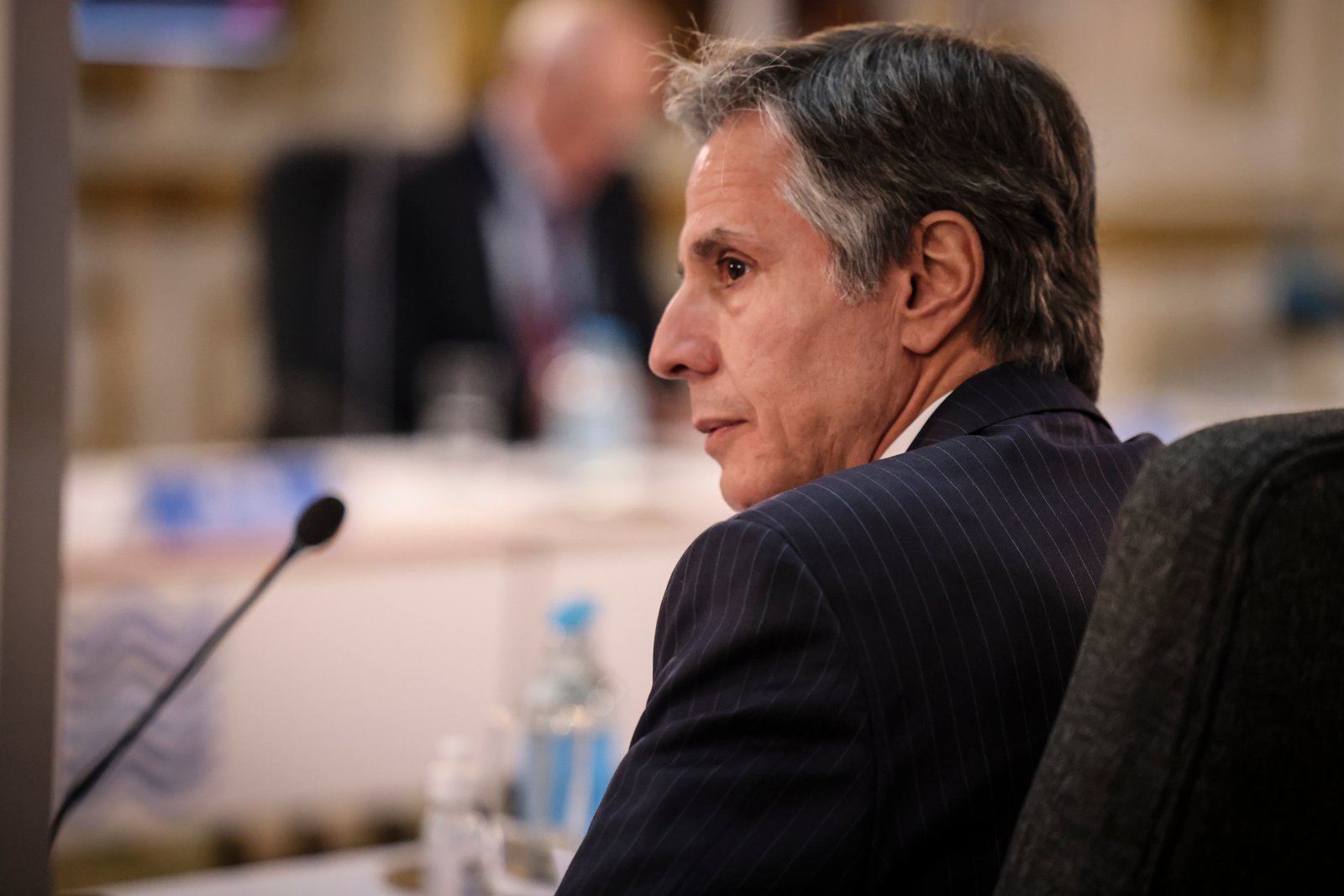
Additionally, Blinken’s father Donald Blinken made a name for himself as Soros’ point man in Hungary from 1994-1998, where he served as US Ambassador facilitating the growth of Soros’ Open Society Foundation. He was later rewarded by the Hungarian speculator with a “Donald and Vera Blinken Open Society Archive” (OSA) at Budapest’s Central European University. The Soros-funded university was created in the wake of the collapse of the Soviet Union and Blinken was instrumental in that operation.
President Viktor Orbán knew exactly what he was doing when he expelled this foreign operation from Hungary’s borders in 2018. At the time, Central European University President Count Michael Ignatieff screamed “This is unprecedented. A U.S. institution has been driven out of a country that is a NATO ally.”
A Segue on Count Ignatieff
It is noteworthy that Ignatieff is himself the son of Rhodes Scholar globalist George Ignatieff and great grandson of Count Nikolai Pavlovich Ignatiev (founder of the Russian Okhrana secret police), whose family was rewarded handsomely for services rendered during the overthrow of the Czarist system in Russia. This story is partially told in the article Cheney Revives Parvus’ Permanent War Madness by Jeff Steinberg (2005).
As a sidenote, Michael Ignatieff’s great grandfather on his maternal side is none other than George Parkin, the first controller of the Rhodes Trust from 1902-1922 and the man whose Oxford lectures and books inspired Cecil Rhodes and Milner to devote their lives to the cause of Empire. Michael is also a global board member of Soros’ Open Society Foundations, which is headed by Mark Malloch Brown.

As I laid out in a recent report, not only did these two upper level managers come to light as figures central to the voter fraud claims that surround the 2020 US presidential election, but both have also pioneered the new age of regime change color revolutions that began with Marcos’ 1986 ouster during the Peoples’ Power revolution in the Philippines and have since ripped through the Balkans, Georgia, Ukraine, Kyrgyzstan, Belarus, Moldova, Bolivia, etc.
Some Final Thoughts
While the Rhodes Trust has been close to the causal nexus of much of recent world history, no one should assume that every Rhodes Scholar is guilty by association, just as one cannot make such assumptions about every WEF Young Leader.
It is an undeniable fact that some Rhodes Scholars have broken with their training and have gone on to live useful lives. I see no reason to assume, for instance, that actor/singer and Rhodes scholar Kris Kristofferson played a nefarious role in anything (though, some of his film choices were a bit weak). Similarly, Canada’s John Turner did some very useful things in his short stint as Canadian Prime Minister, which earned him the ire of many unipolarists then promoting NAFTA, Maastricht and the Euro.
The key thing to keep in mind is that longer waves of history are shaping the present more than most historians would care to admit. Anyone taking an intention-driven approach to historical analysis will come to recognize quickly enough that events that took place centuries ago have an active impact on the events playing out today.
How and why is this so? Because history is shaped by ideas. Good ideas that are in tune with the truthful nature of reality vs bad ideas that are out of tune with said reality. This battle over ideas (and ideas about ideas e.g.: Plato’s higher hypothesis) is where the causal nexus of universal history is found. With this in mind, we can see clearly how certain people use their influence to conspire and create cultural and political institutions that transmit those ideas and organizing principles across many generations. Sometimes we find these forces to be acting in harmony with natural law and sometimes very much in defiance of natural law.
Today’s battle between the opposing paradigms of the multipolar alliance led by Russia and China on the one hand vs the unipolarist/post-nation state worldview on the other has everything to do with these longer forces of history. The only way to comprehend the ideologies pushing the world towards a new iron curtain today, and managing international fifth columns across the many nations of the world is by recognizing this higher reality.
This exercise may cause you to think about thinking differently, and at first may be uncomfortable, but just as the figure released from the cave who slowly accustoms his/her eyes to the light of the sun and reality, the satisfaction of enjoying a higher order of truthfulness is incomparably more pleasant to a life believing in the shadows cast by an elite class of puppeteers.
Endnotes
[1] Klaus Schwab delivered the following remarks upon Strong’s 2015 death saying: “He [Strong] was my mentor since the creation of the Forum: a great friend; an indispensable advisor; and, for many years, a member of our Foundation Board. Without him, the Forum would not have achieved its present significance.”On year later, at a 2016 Davos meeting, Justin Trudeau went further in his eulogizing Strong saying: “Thank you Professor Schwab for your warm welcome, and for bringing this impressive group together. I’d like to take a moment just off the top to recognize a founder of the World Economic Forum and a great Canadian, Maurice Strong, who passed away just a couple of months ago.”
[2] In 1951, the Chicago Tribune published an incredible series of investigative reports by journalist William Fulton outlining the depth of penetration of UN, US State Department, Canadian, academic and private sector foundations (albeit with a mistaken conclusion that the controlling hand behind this conspiracy was “communist”)
[3] Some of FDR’s leading allies who shared in his vision for a multipolar age of global industrial cooperation and whose lives were either cut short or systematically slandered in the post war age include: Undersecretary of State Sumner Wells, Republican Party leader Wendell Wilkie, Harry Hopkins, former Vice President Henry Wallace and leader of the US delegation at Bretton Woods Harry Dexter White.[4] The mandate for the new organization was set out clearly in Huxley’s 1946 UNESCO: Its Purpose and Its Philosophy: “At the moment, it is probable that the indirect effect of civilization is dysgenic instead of eugenic, and in any case it seems likely that the dead weight of genetic stupidity, physical weakness, mental instability and disease proneness, which already exist in the human species will prove too great a burden for real progress to be achieved. Thus even though it is quite true that any radical eugenic policy will be for many years politically and psychologically impossible, it will be important for UNESCO to see that the eugenic problem is examined with the greatest care and that the public mind is informed of the issues at stake so that much that is now unthinkable may at least become thinkable.”[5] In the 1977 Ecoscience: Population, Resource and Environment co-written with his mentor Paul Ehrlich, John Holdren made his ideological allegiances crystal clear when he mused of the world government he wished be brought into being to solve overpopulation: “Perhaps those agencies, combined with UNEP and the United Nations population agencies, might eventually be developed into a Planetary Regime- sort of an international superagency for population, resources, and environment. Such a comprehensive Planetary Regime could control the development, administration, conservation, and distribution of all-natural resources, renewable or non-renewable, at least insofar as international implications exist. Thus, the Regime could have the power to control pollution not only in the atmosphere and oceans, but also in such freshwater bodies as rivers and lakes that cross international boundaries or that discharge into the oceans. The Regime might also be a logical central agency for regulating all international trade, perhaps including assistance from DCs to LDCs, and including all food on the international market. The Planetary Regime might be given responsibility for determining the optimum population for the world and for each region and for arbitrating various countries’ shares within their regional limits. Control of population size might remain the responsibility of each government, but the Regime would have some power to enforce the agreed limits.”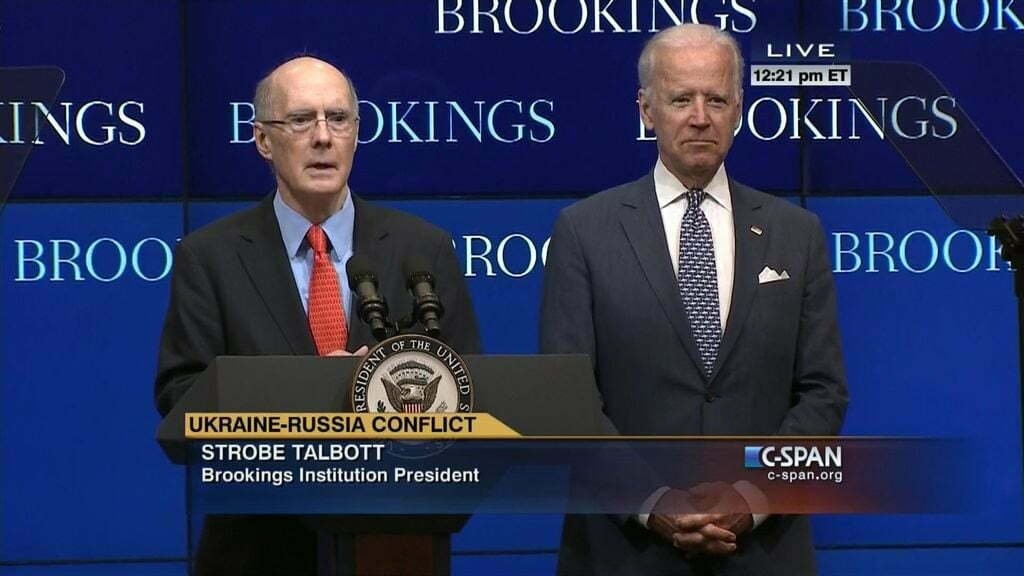




Geen opmerkingen:
Een reactie posten